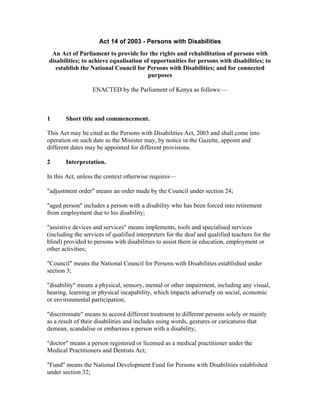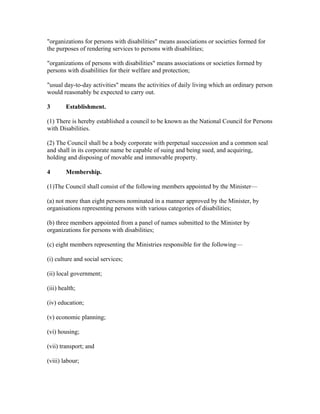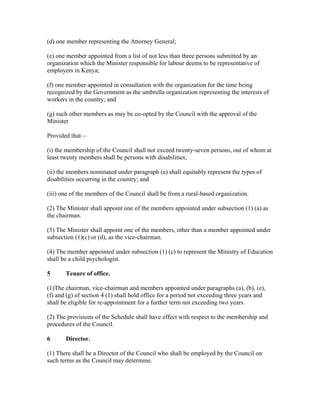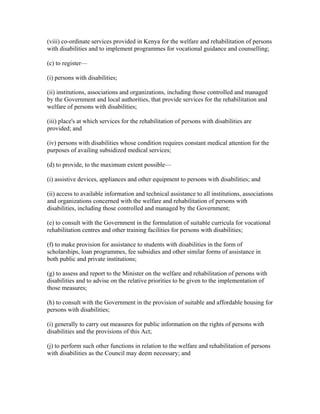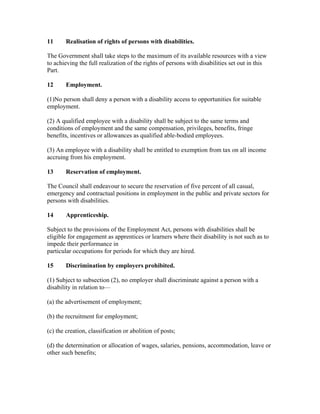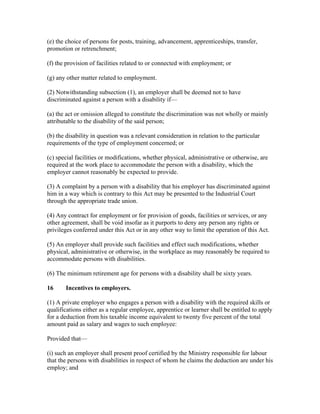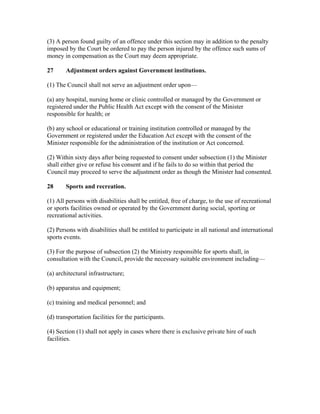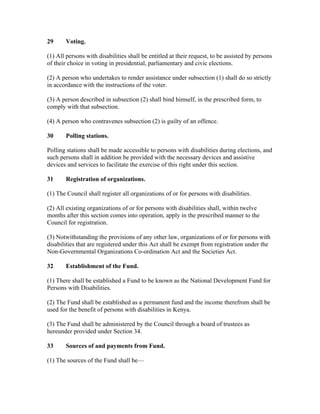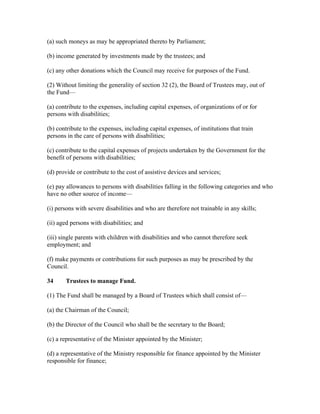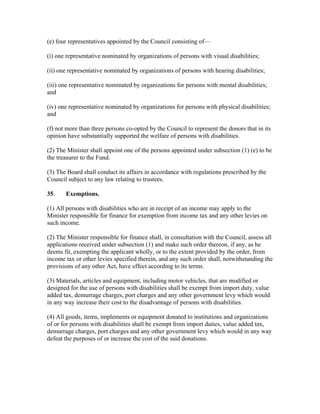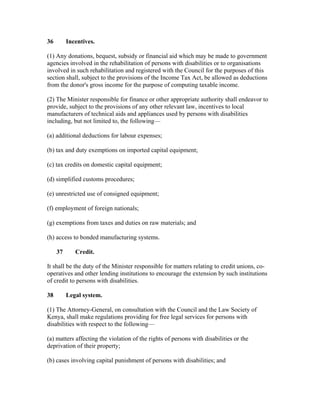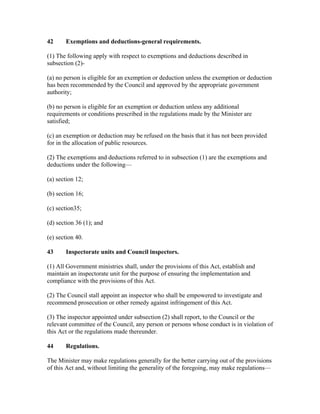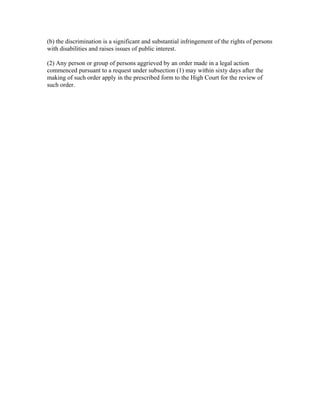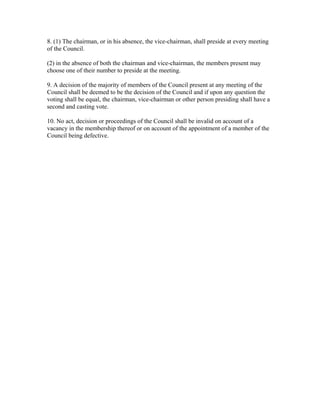This document is an Act of Parliament in Kenya that establishes rights and protections for persons with disabilities. Some key points:
- It establishes the National Council for Persons with Disabilities to develop policies and measures to promote equal opportunities and participation for persons with disabilities.
- The Council is tasked with registering persons with disabilities, disability organizations, rehabilitation services and facilities. It also provides assistive devices and advocates for accessibility.
- The Act prohibits discrimination against persons with disabilities in employment, education and access to public services. It requires accessibility of public buildings and transportation and provides incentives for employers hiring persons with disabilities.
- Government is tasked with achieving full realization of the rights of persons with disabilities, including in
